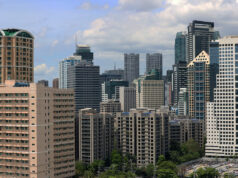Central Visayas wage board okays P10-P20 hike — report
THE Regional Tripartite Wages and Productivity Board has approved a P10-P20 increase in the minimum wage for Region VII, or the Central Visayas, Cebu newspaper The Freeman reported, citing a member of the board.
The wage hike is in line with the central bank’s estimate for wage hikes this year, which is P18-20 based on previous wage board decisions, but is well short of the P120 being sought for workers in the region by the Associated Labor Unions (ALU)-Trade Union Congress of the Philippines. Other petitioners sought a P155 increase, the report said — the Cebu Labor Coalition, NLM-Katipunan, Metaphil Workers Union and Unionbank Employees Association.
The report, quoting a labor representative to the board, Jose P. Tomongha, said the approved wage hike will vary by municipality.
The high end of the range — P20 — applies to Class A cities and municipalities. The Freeman said in Region VII, the cities in the Class A category are the cities of Carcar, Cebu, Danao, Lapu-Lapu, Mandaue, Naga, and Talisay and the municipalities of Compostela, Consolacion, Cordova, Liloan, Minglanilla, and San Fernando, all in Cebu province.
Eligible for a P15 minimum wage increase are Class B, C and D cities and municipalities. The report said the areas covered include the Class B cities of Toledo and Bogo and all other municipalities of Cebu Province except for those on Bantayan and the Camotes Islands.
Also qualifying for the P15 wage hike are the Class C cities and municipalities in all of Bohol and Negros Oriental provinces; as well as the class D municipalities making up all of Siquijor, as well as Cebu province’s Bantayan and Camotes islands.
Workers in companies with less than 10 employees are eligible for a P10 minimum wage increase, the report said.
In a statement, one of the petitioners, ALU, called the wage hike insufficient to lift workers out of extreme poverty.
The statement, citing ALU spokesperson Alan Tanjusay, added that the segmentation of wage hikes by class of municipality will create bigger problems such as worker migration to areas with higher wages, as well as overpopulation, “in the same way Metro Manila is experiencing now.”
He also called the ruling highly favorable for employers.
The ALU statement also said the Region VI, or Western Visayas, wage board approved a hike of P41.50 for nonagricultural workers; P23.50 for companies with less than 10 employees; and P13.50 for agricultural workers. This ruling from the Region VI wage board could not immediately be verified as of deadline time.
BusinessWorld sought comment from members of the Western Visayas wage board, but they declined to provide a statement, saying they were not in possession of the ruling documents.
In a Viber message, the National Wages and Productivity Commission (NWPC), which must affirm all regional board decisions, said the Commission Secretariat has yet to receive any submissions from regional boards but is monitoring developments and will convene an NWPC meeting “immediately” when it is in a position to affirm any such rulings. — with a report from Louine Hope U. Conserva



